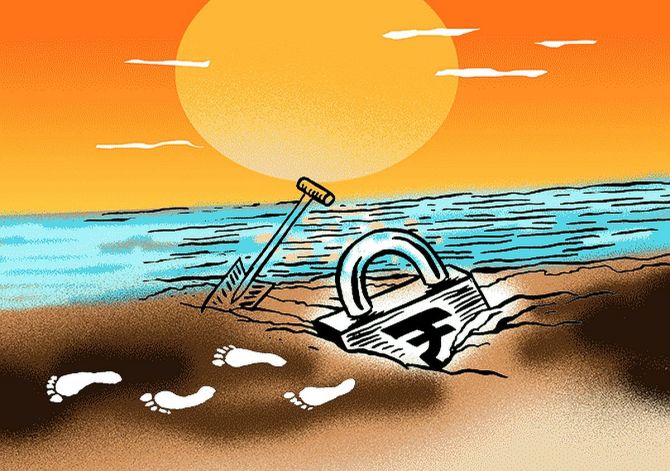The additional outgo to combat the impact of COVID-19 will significantly erode the fiscal consolidation achieved by the state governments in the past three years, an RBI report said on Tuesday.

In its study of the state budgets of 2020-21, the RBI report which has dwelled on the theme 'COVID-19 and its Spatial Dimensions in India', said that Gross Fiscal Deficit (GFD) of the states would spiral during the current fiscal.
"States have budgeted their consolidated GFD at 2.8 per cent of GDP in 2020-21; however, the COVID-19 pandemic may alter budget estimates significantly, eroding the gains of consolidation secured in the preceding three years - the average GFD for states that presented their budgets before the outbreak of COVID-19 is 2.4 per cent of GSDP, while the average for budgets presented post-lockdown is 4.6 per cent," the report said.
Observing that the quality of spending and the credibility of state budgets will assume critical importance, it said, the next few years are going to be challenging for the states.
They have played an important role in the frontline of the defence against the pandemic.
Going forward, they need to remain empowered to provide growth impulses to the Indian economy and build resilience against future pandemics as well.
Sustaining the recovery from the pandemic will reshape state finances, entailing boosting investment in health care systems and other social safety nets in line with the states' demographic and co-morbidity profiles, it added.
"They need to remain empowered with effective strategies to drive through these difficult times.
“Sub-national fiscal policy has to be judicious and calibrated," the report said.
Across states, maintaining overall stability, quality of spending and credibility of budgets may distinguish one state's resilience from another.
The states, the report said, will need to focus on building digital infrastructure to improve provision of public services more efficiently in a post-pandemic new normal and upgrading the urban infrastructure with increased engagement of local governments so as to improve the resilience of our COVID-scarred cities, which were severely hit during the pandemic.
The study noted that the Indian economy has been hit hard, with the second largest caseload in the world and the COVID-19 curve yet to flatten on a sustained basis.
With about a quarter of GDP already lost in Q1: 2020-21 (April-March) and the contraction estimated at close to 10 per cent in Q2, "public finances have been subjected to severe strains".
"The debilitating combination of compression in tax receipts and ramped-up expenditures has generated unprecedented pressures on fiscal positions at sub-national levels," it said.
Some states have been impacted quicker and harder than others, depending upon indigenous demographics and epidemiological features as well as availability and accessibility of health care resources, said the RBI's study.
Supply chain disruptions have also been different depending on nature of businesses and other activities that various states specialise.
Further, with health care, social services and other critical aspects of containment being the responsibilities of state governments, testing, monitoring, and enforcing confinement and ensuring the continuity of provision of essential services has turned out to be a function of the digitisation base of states.
As against the conventional push/ pull factors which work towards influencing the migrants' movement, a different kind of push/pull worked during the pandemic, associated with high levels of informal unemployment.
"Indian states had to contend with reverse migration from abroad as well as across states, with large-scale implications for underlying activity, conditional upon the extent of dependence of states on migrants for factor income, employment and performance of micro, small and medium enterprises (MSMEs)," it said, and added this had implications for state finances as well.
As per the RBI, the overall impact on state finances would be conditional upon the exposure to COVID-19, the availability of initial fiscal space and access to rainy day funds, or other reserve funds, if any.
State governments' responses by delaying or cutting down expenditures, even wages and salaries, also need to be taken into account in the assessment of the pandemic's direct effects on state finances.











 © 2025
© 2025